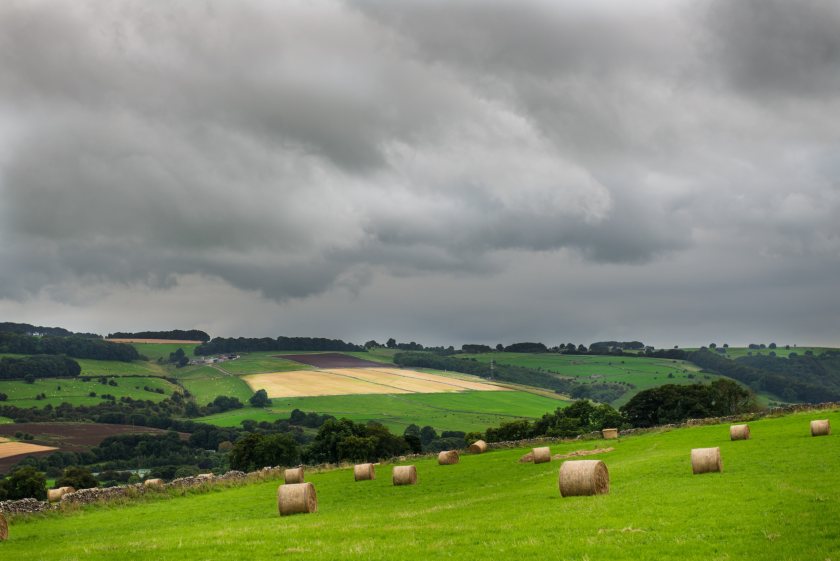
Researchers have warned about the impact of 'climate tipping points' on the UK due to its position near the North Atlantic, as such an event could 'wipe out' domestic crop growing.
An assessment of climate threats to UK food security has put a spotlight on climate tipping points as a 'severely overlooked danger', a new report published today warns.
Researchers from the Institute of Public Policy Research (IPPR) and others point to the fact that climate change is already playing a significant role in several threats to UK national security, including food supply.
But they warn that the government has a 'blind spot', as major climate threats are not adequately addressed in its national risk register, while some threats – like climate tipping points – are not included at all.
The report explains that one rapidly evolving threat which would severely impact farmers and UK food security is the risk that climate tipping points are triggered.
These are moments when parts of the climate system can no longer cope with the stress being inflicted by human action and abruptly break down.
Tipping points in the Atlantic Ocean pose particular threats to the UK, with the report finding evidence of a 45% chance of the North Atlantic subpolar gyre (SPG) collapsing this century and happening as early as 2040.
Researchers warn that such an event could destabilise national and global security, and the ability to farm and grow crops would also be impacted.
The SPG is a northern component of the Atlantic Meridional Overturning Circulation (AMOC), a large system of rotating ocean currents in the Atlantic Ocean that plays a crucial role in regulating regional and global climate.
Consequences of the SPG collapsing – triggered by melting Arctic ice – could include fundamental changes to the UK’s weather, thus severely impacting food supply.
After being triggered, the collapse of the SPG could happen within 10 years, if not less, according to the research, with the UK being one of the worst affected countries due to its geographic position in relation to the North Atlantic.
Yet these threats have not been properly assessed by previous governments, something the report urges the new Labour government to address.
Even more concerning than the SPG collapse would be the breakdown of the entire AMOC, which would effectively wipe out crop growing in the UK and severely damage the global food system.
The report says this would create 'unmanageable outcomes' for economic stability, geopolitical cohesion, and all other parts of society.
The breakdown of the AMOC this century cannot be ruled out without urgent international action to reduce greenhouse gas emissions, it says.
Researchers say the government must learn from the mistakes of the Covid-19 pandemic, specifically the UK’s lack of preparedness.
The report recommends that the government undertakes a rapid national security risk assessment of climate change, to identify the most critical threats and develop options to manage the risks better.
Laurie Laybourn, associate fellow at IPPR and lead author of the report, noted that climate change wasn't just an ‘environmental’ issue.
"It already poses severe threats to our security - this is not widely appreciated. But like Covid, severe climate impacts can come out of nowhere, with effects that cascade across society," she said.
“Previous governments did not adequately address climate change in their national security assessment and planning - the UK is poorly adapted even to current climate threats."
Ms Laybourn added that the new government had an opportunity to learn the lessons from the UK's unpreparedness for the pandemic.
"It should undertake a rapid national security risk assessment to analyse key climate threats to security, and develop plans to better prevent and mitigate the consequences.”
The report was published by the Institute of Public Policy Research (IPPR), Chatham House, the University of Exeter, and the Strategic Climate Risks Initiative.
